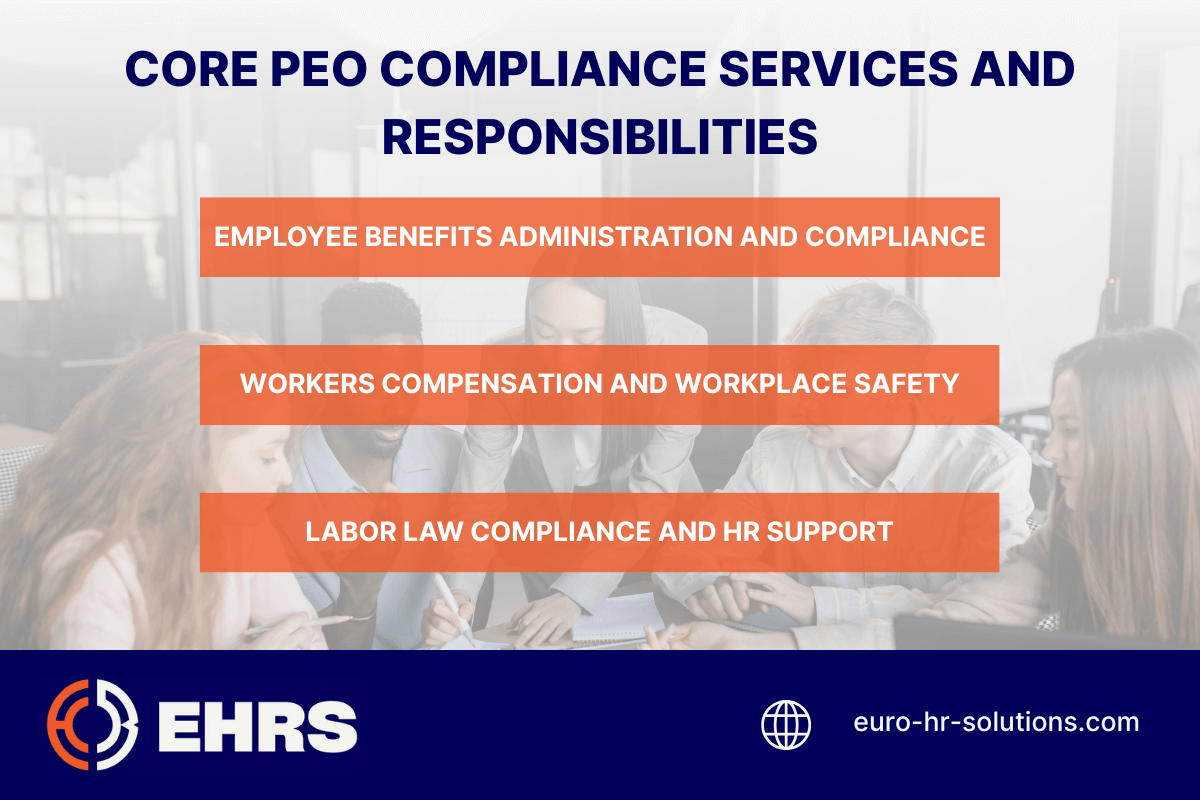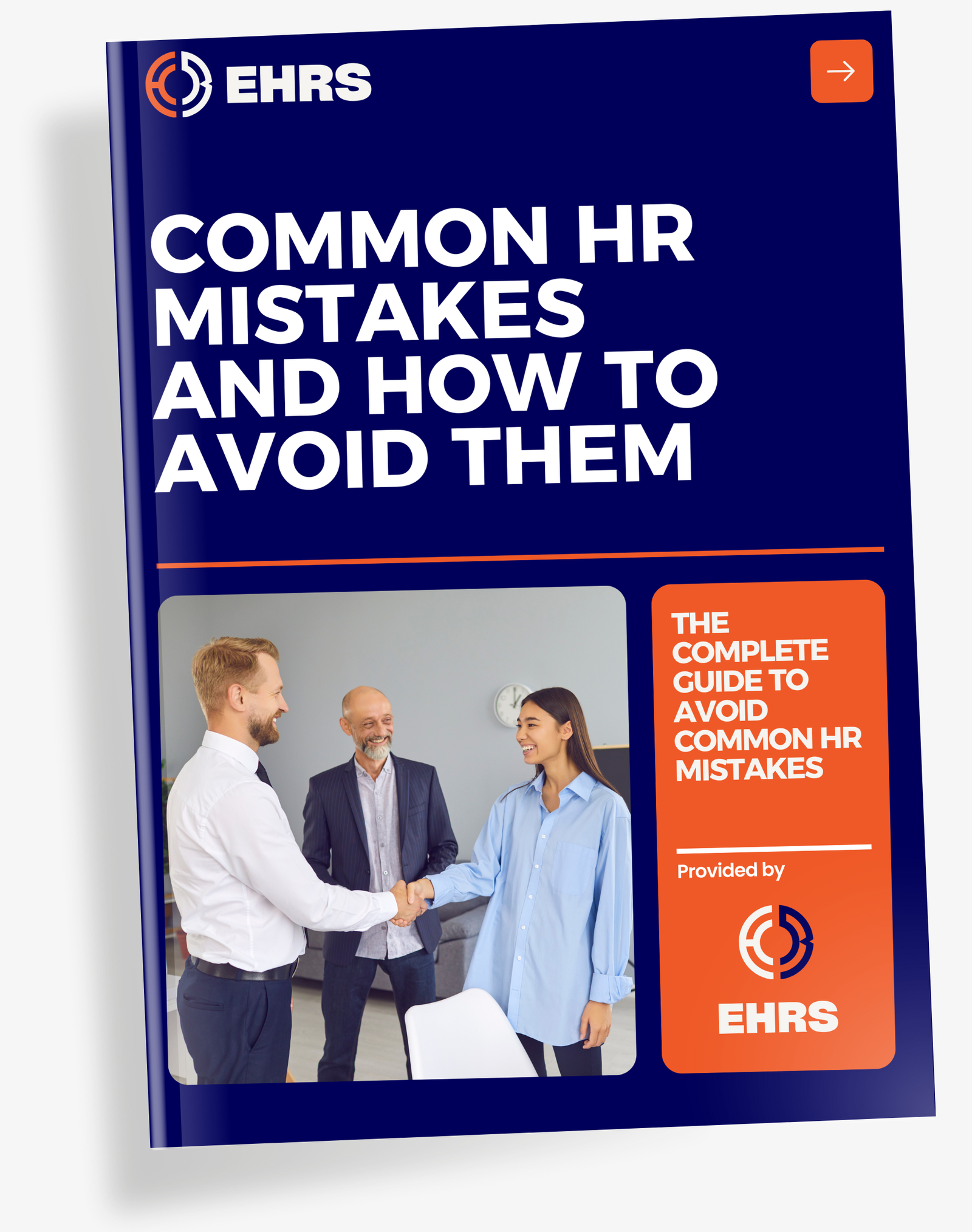Are complex regulatory requirements straining your business’s HR resources? PEO compliance offers a strategic solution by ensuring adherence to federal, state, and local employment laws while mitigating legal risks through expert co-employment frameworks.
This article explores how partnering with a Professional Employer Organization (PEO) streamlines payroll, benefits administration, and labor law compliance, empowering businesses to focus on growth without compromising regulatory standards.
Key Components of PEO Compliance
| Component | Regulatory Scope | Business Impact |
| PEO compliance | Federal employment laws, state tax codes, local labor standards | Legal risk reduction, operational management assurance |
| Payroll tax compliance | IRS employer identification number (EIN) regulations | Penalty avoidance for 40% of small businesses facing $845 average fees |
| Employee benefits compliance | ACA, erisa, cobra requirements | Enhanced benefits services accessibility for companies with employee populations under 50 |
| Workers compensation coverage | State-mandated insurance requirements | Proper risk management for 85% of employers reducing payroll errors |
Benefits of PEO Compliance for Businesses
Risk Management and Legal Protection
Professional employer organizations reduce employment-related legal risks through expert compliance management. PEOs identify regulatory pitfalls and implement preventative measures to protect businesses from 4% penalties.
HR compliance expertise from PEOs distributes liability through co-employment models. While client companies maintain operational control, PEOs assume responsibility for regulatory adherence in employment standards.
Streamlining Payroll and Tax Compliance
Payroll processing and tax filing obligations across multiple states get simplified through PEO partnerships. These services ensure accurate, timely regulatory submissions.
Centralized payroll management through PEOs minimizes filing errors that trigger penalties, addressing potential payroll compliance gaps. Expertise in multi-state regulations ensures proper tax calculations and compliance with federal, state, and local requirements.
- Payroll tax compliance expertise that reduces business failure risk by 50%
- Multi-state tax compliance solutions for businesses employing 4 million workers
- Revenue growth enhancement by 40% through streamlined tax management
- Employee turnover reduction by 14-16% through efficient compliance management
- Business expansion support with 7-9% faster job growth in PEO-partnered companies
These data points demonstrate how PEO compliance services deliver measurable advantages for small businesses through improved payroll accuracy, tax efficiency, and comprehensive compliance support.
Core PEO Compliance Services and Responsibilities

Employee Benefits Administration and Compliance
PEOs ensure compliance with ACA, ERISA, and COBRA through proper filing of forms like 1094-C and 1095-C, avoiding penalties up to $1,881 daily.
By pooling employee groups, PEOs negotiate Fortune 500-level benefits for small businesses, reducing turnover by 14% through competitive benefits services.
Workers Compensation and Workplace Safety
PEO compliance includes workers compensation insurance management, fraud prevention, and safety program implementation for state-specific requirements.
Risk assessment and proper employee classification lower workers compensation costs. Services eliminate upfront deposits typically required by insurers (25-100% of annual premiums).
Labor Law Compliance and HR Support
PEO compliance covers federal, state, and local employment laws including anti-discrimination regulations (EEOC, ADAAA, ADEA, FMLA, CRA).
HR compliance tools include employee handbooks, policy updates, and regulatory tracking. Compliance dashboards and mobile apps help avoid $50,000 OSHA penalties while managing 45% cost increases over ten years.
- ACA (Affordable Care Act) reporting requirements
- ERISA (Employee Retirement Income Security Act) filing obligations
- COBRA continuation coverage notices
- ADA (Americans with Disabilities Act) accommodations
- ADEA (Age Discrimination in Employment Act) protections
- FMLA (Family Medical Leave Act) eligibility
- OSHA (Occupational Safety and Health Act) standards
- FLSA (Fair Labor Standards Act) wage requirements
Compliance audits, such as GDPR-focused HR audits, ensure legal adherence while navigating complex regulatory landscapes.
Selecting the Right Professional Employer Organization
Evaluating PEO Expertise and Accreditation
Certified Professional Employer Organizations (CPEO) through the IRS demonstrate financial responsibility and federal compliance. Accreditation requires $1,000 annual fees and minimum 33% ownership by responsible individuals.
Industry-specific expertise ensures compliance with state-specific labor laws and tax codes, and can also guide on broader EU compliance. Only 1% of PEOs maintain both IRS CPEO certification and ESAC accreditation, guaranteeing rigorous financial safeguards and operational standards.
Cost Considerations and Service Agreements
PEO pricing models range from $100–$120 per employee monthly to 2–12% of payroll gross tax. Hidden fees for setup or early termination require careful contract review.
Service agreements define co-employer responsibilities for compliance management. Clear terms cover benefits administration, insurance coverage, and multi-state regulatory adherence.
Comparing PEO Pricing Models and Value Proposition
| Pricing Model | Cost Structure | Value Proposition |
| PEO Flat Fee (PEPM) | $40–$160 per employee per month or $900–$1,500/year for small businesses | Predictable compliance services budgeting |
| Percentage-Based | 2–12% of payroll gross tax total | Scalable compliance management for businesses with lower average salaries |
| Hybrid method | Flat fee + % for insurance (e.g., workers compensation) | Flexible services application with cost customization |
| Employer Size | Per-employee costs decrease with larger organization size | Cost savings via economies of scale for companies |
| Industry Risk | Construction vs. remote workers affect risk management | Specialized compliance services for high-risk sectors |
| Benefits Packages | Health, dental, and 401(k) benefits increase total cost | Access to Fortune 500-level employee benefits through collective resources |
| State Regulations | Varying state laws, SUTA rates, and labor compliance requirements | Compliance assurance for businesses in multiple state jurisdictions |
| Hidden Fees | $100s–$1,000s setup fee, recurring tech fees, early termination penalties | Need for transparent service agreements to avoid unexpected costs |
| ROI Metrics | 27% average annual return on investment (NAPEO data) | Proven cost savings and operational efficiency for companies |
| Employee Retention | 12% lower turnover rate vs. non-peo businesses | Long-term cost reductions on recruitment and training |
Professional Employer Organizations (PEOs) simplify regulatory compliance by managing payroll, benefits, and labor laws, allowing businesses to focus on growth. Partnering with accredited PEOs minimizes legal risks while ensuring adherence to evolving federal, state, and local regulations. For organizations seeking operational efficiency, vetting PEOs with proven compliance expertise transforms regulatory burdens into strategic advantages.





